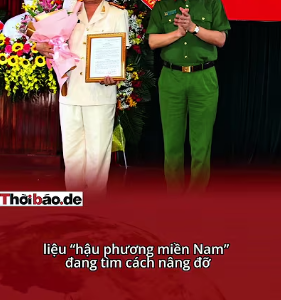
The Lloyd’s List page reports that 8 Aframax-class tankers and 2 smaller Vietnamese classical ships have been identified to engage in evasion and fraudulent activities to disturb the origin and destination of the cargo of crude oil.
According to Lloyd’s maritime intelligence data, ships named PVT Aurora, Aura, Cameron and Explorer have been found pumping crude oil from Venezuela since August 2020.
Similarly, Aframax tankers named Abyss, Freedom, Explorer, and PVT Dolphin have participated in or forwarded oil from Iranian crude tankers over the past 12 months.
“All of these ships have Vietnamese nationality, with images in the Automatic Identification System (AIS) showing inexplicable interruptions when the ships are in critical areas for a period of time to transport oil out of Venezuela or Iran,” writes Lloyd’s List Intelligence.
Search engine Marine Traffic and online search engine of the Vietnam Maritime Administration (Vinamarine) said that these ships are owned by PetroVietnam Transportation Corporation (PVTrans), under PetroVietnam, or by other businesses in which PetroVietnam has a stake.
The PetroVietnam website said that the PVT Aurora oil tanker was received by PVTrans in November 2019, with a tonnage of 20,000 DWT, for charter carriage for foreign customers on international routes.
VOA has contacted both PetroVietnam and PVTrans to learn more about information as announced by Lloyd but has not received any response.
The final destination for Vietnamese ships carrying oil from Iran and Venezuela is difficult to determine, according to Lloyd, but China is the largest importer of embargoed crude and Vietnamese oil vessels seem to be participating in the network of ship-to-ship (STS) oil transfer complex offshore waters between Malaysia and Indonesia, or the Fujairah Islands.
According to Lloyd, these Vietnamese tankers are part of about 130 oil tankers identified to have engaged in sanctioned trade and have not been blacklisted or punished by the US.
The website of Lloyd’s List Intelligence on February 18, 2021, about Vietnamese oil tankers violating sanctions on Iran and Venezuela.
Observers stated that if the information of Lloyd’s List Intelligence is true, the violation of the embargo of Vietnamese oil tankers is very serious, causing bad effects.
From Hanoi, Dr. Nguyen Quang A told VOA:
“Such violations often have a very high return because doing such things is very risky. When discovered, they were faced with fierce international sanctions. If this is true then this act of recklessness is very dangerous.”
From Ho Chi Minh City, Mr. Quang Huu Minh, who is interested in Vietnam’s foreign relations, analyzed:
“The embargo against Iran and Venezuela forced China to find a way to source oil. And Vietnam is a country doing „reinforcements“ for these countries, along with the close relationship between Vietnam and China for a long time.”
“I think that the US will definitely punish companies under the Vietnam Oil and Gas Corporation for violating this embargo.”
„But I think the Vietnamese side already knew this.“
Previously, in December 2020, the US punished the Vietnam Gas and Chemical Transport Company (PCT) and Mr. Vo Ngoc Phung, the company’s director, for violating sanctions against Iran.
On December 16, 2020, the US Department of Finance issued a statement placing Mr. Vo Ngoc Phung, 39 years old, and PCT Company on the list of Specially Designated Individuals and Entities (SDN) under the management of the Office of Foreign Assets Management (OFAC), as Washington maintains that the company has „engaged in significant transactions in the transportation of oil from Iran.“
Vietnamese Foreign Ministry’s Spokeswoman Le Thi Thu Hang later said that Vietnam „regretted“ the punishment, adding that relations between Vietnam and Iran were „open, transparent and transparent, and legal.“
Previously, Thinh Cuong Co., Ltd. in Hai Phong, another Vietnamese transport company, was also sanctioned by the US Department of Finance for violating an embargo against North Korea.

The US State Department on December 16, 2019, announced the imposition of sanctions on the Vietnam Gas and Chemical Transport Company, under executive order 13846 for intentionally participating in, on or after November 5, 2018, in an important transaction to transport oil products from Iran.
The State Department’s statement on the same day added that the ministry also imposed sanctions under executive order 13846 on the company’s director, Vo Ngoc Phung, as the company’s chief executive officer.
In addition, the US has imposed sanctions on companies based in China and the United Arab Emirates, accusing them of supporting the sale of Iranian petrochemical products while Washington increases pressure on Tehran.
The move comes as the Trump administration has enacted sanctions mostly against Iran for several weeks in a row almost every day.
„Iran’s petrochemical and oil sectors are the main sources of funding for the Iranian regime, used to support Iran’s evil domestic and foreign agenda,“ said US Treasury Secretary Steven Mnuchin.
The US State Department’s statement said the newly enacted sanctions would reduce the Iranian regime’s human rights violations against the people of Iran.
„We repeat that only a fundamental change in the Iranian regime’s behavior can lead to the path to lifting the sanctions,“ the statement concluded.
Does Vietnam violate the embargo when selling transport ships to North Korea?
The Wall Street Journal (WSJ) of the US revealed on Thursday, March 5, 2020, that North Korea bought a 16,000-ton Vietnamese transport ship in mid-2018. Its name is Fortuna, owned by the Vietnam Shipping Company, Vinalines, now renamed Thai Binh (Tae Pyong) and carries the North Korean flag.
WSJ said that Vinalines sold this vessel because of financial difficulties. This shipping company is a state-owned company that has been involved in corruption crimes in Vietnam over the past few years. Vinalines did not respond to WSJ about the sale of this vessel to North Korea.
In January of this year, 2020, international shipping records indicated that the Thai Binh was located in a western port in North Korea. But since the change of ownership until now, this ship has been identified only once.
Maritime experts believe that it is possible that the North Korean authorities did not allow the ship to broadcast radio to avoid being identified, or maybe the Thai Binh broadcast with the signal of the identity of another ship.
These are the ways Pyongyang often uses to conceal its ships to evade sanctions.
Currently, North Korea is under the embargo of the United Nations and the US because of its nuclear weapons testing program.
But the two countries most likely to violate the embargo are North Korea’s two „discreet“ allies, Russia and China.
It is common to see North Korean ships carrying materials to mainland ports.
Both China and North Korea have denied these allegations.
The US and its Asian allies often hold joint patrols at sea, and once arrested North Korean ships carrying goods in violation of the embargo.
So far Vietnam has not been accused of violating the North Korean embargo.
Malaysia detained a Vietnamese oil tanker after it arrived in North Korea
A Vietnamese tanker arrived in North Korea in February 2019 and was detained by Malaysia when it was anchored off the Malaysian coast, maritime officials said according to a report of Reuters on December 12, 2019.
Reuters quoted the Refinitiv shipping data, showing that the Viet Tin 01 vessel arrived outside the Nampo port on the west coast of Korea on February 25, 2019, carrying 2,000 tons of petroleum, just before the meeting talks between North Korean leader Kim Jong Un and US President Donald Trump in Hanoi.
It is not clear whether the tanker has loaded and unloaded cargo at Nampo. Under UN sanctions, North Korea is strictly limited in the import of crude oil and refined petroleum products.
The Malaysian Maritime Enforcement Agency (MMEA) said a group of officers boarded the tanker on Sunday (December 9, 2019) after it was discovered that the vessel was anchored without permission of the Malaysian southern state of Johor.
The agency said a 61-year-old Vietnamese oil tanker chief said the ship had drifted from its original position.
The director of the Johor state MMEA agency Aminuddin Abdul Rashid said in a statement posted on the agency’s Facebook account, saying:
„Previously, the ship of the agency designated to the location attempted to contact the tanker via radio and loudspeaker, but received no response and suspected the vessel was abandoned.“
Aminuddin said the crew member was detained for further investigation but did not say whether the ship is under investigation for its links with North Korea.
Reuters said that calls to Viet Trust Shipping Corp., based in Ho Chi Minh City, the registered owner of the ship Viet Tin 01 did not respond.
Thoibao.de (Translated)


























